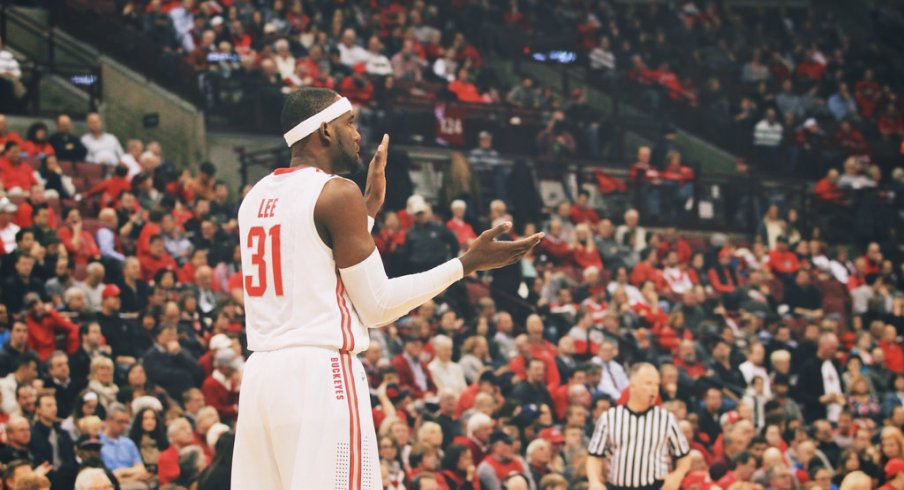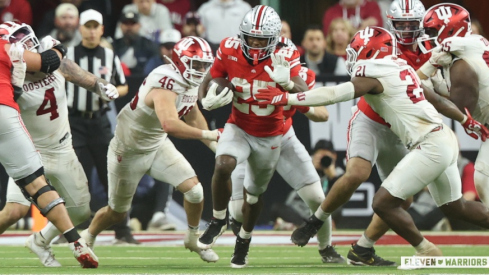Legend Bey will sign with Ohio State after receiving a release from his scholarship agreement with Tennessee.
We now live in an era where the NCAA is scrutinized after each new piece of legislation crosses President Mark Emmert's desk.
The latest, approved in April 2014 and enacted for the upcoming 2015-16 athletic calendar, will strip an undergrad athlete's ability to apply for immediate eligibility after transferring. In related news, the NCAA also announced plans to study post-grad transfer rules and whether those athletes should be immediately eligible for competition.
Any changes in grad-transfer rules would affect players in a similar spot as Anthony Lee, who transferred to Ohio State after graduating from Temple. Most notably, Russell Wilson used those rules to his advantage by transferring from N.C. State to Wisconsin.
"The group will discuss whether that policy should be consistent with the undergraduate transfer policy," according to a recent press release on NCAA.org. "[The policy] requires students competing in baseball, basketball, bowl subdivision football and men’s ice hockey to sit out of competition for a year after transferring."
It's not a coincidence that rule only exists in the revenue-generating sports. The more control the NCAA and member institutions exhibit over those student athletes is always better for business.
At this point, the burden for positive change falls on some vigilante affiliated with a powerful university. Ohio State Athletic Director Gene Smith led the charge for an increase in stipends for players' families traveling during bowl season. Those changes were approved by the NCAA during OSU's preparation for Oregon, such a quick turnaround for an organization known for its lack of social progress.
So, who will come to the defense of student athletes seeking immediate eligibility? How many cases, such as Tulsa's Khari Harding case, will it take for someone in a leadership position to realize these transfer stipulations are counter-intuitive? Like many NCAA rules, they're borderline immoral.
Harding transferred to Tulsa from Auburn to be closer to his father, who is battling cancer for a second time. He hoped his ailing father, Corie, would be able to see him play football this fall, but it's now dependent on the NCAA making a special exception for him to be immediately eligible.
"Why would he have left a place he really, really loved if we had known this rule change was happening?" Corie Harding told the Oklahoman. "His paperwork went in in January, and now they come out with this right in the middle of spring football? This is really, really devastating to hear."
The end of the college basketball season signals a wave of transfers to ensue. Last year, according to NCAA data, 604 Division I players switched schools. About 4,600 athletes play basketball at the highest level, which means roughly 13 percent of all Division I basketball players transferred prior to this season. This is a significantly smaller number than the "one in every three" college students who transfer, a figure cited by the New York Times in 2010.
Only 58 post-grad transfers occurred last year at the Division I level and any legislation related to that would clearly affect only a small number of players. As implied, these athletes already completed their four-year degrees, so current rules do not disincentivize them from furthering their education.
It's not an epidemic specific to college athletics and is not directly affecting my enjoyment of strong NCAA Tournament games. One member of the media seems to think otherwise. Either he was having an extremely rough day when this news broke or he's just heartless:
Best news I've gotten today: the NCAA will no longer grant immediate eligibility for four-year transfers starting during the 15-16 season.
— Jon Rothstein (@JonRothstein) March 24, 2015
The transfer epidemic is hurting our sport. Kudos to the NCAA for finally taking action and ending this nonsense. No place for it in CBB.
— Jon Rothstein (@JonRothstein) March 24, 2015
Contrary to Rothstein's opinions, college athletics would be taking a positive step forward if the NCAA relaxed transfer restrictions. The closer we are to complete freedom for student athletes – meaning no rules prohibiting immediate eligibility for transfers – the better college sports will be. Any step taken in the opposite direction would only add to the NCAA's tyrannical reign.


